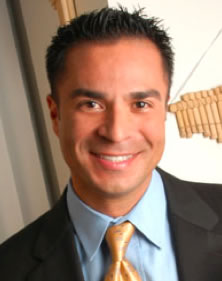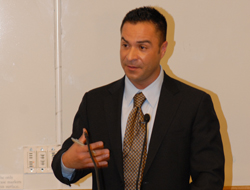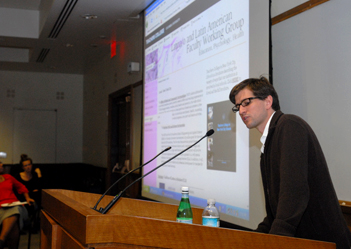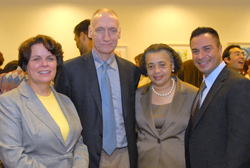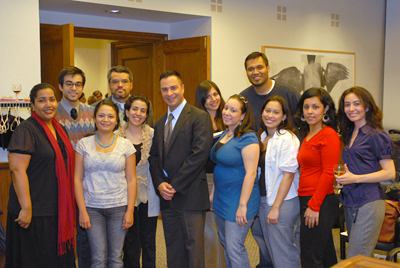Filed Under > TC Community
Gates Program Officer to Speak on Breaking the Intergenerational Cycle of Poverty
Gilberto Q. Conchas, a Gates Foundation Senior Program Officer, will speak at TC this coming Thursday, November 13th, on "Maximizing Opportunities and Minimizing Obstacles: Breaking the Intergenerational Cycle of Poverty through Post-Secondary Education."
Conchas will speak from 5 to 7 p.m. in Grace Dodge Hall Room 179. This event will include the launching of new website created to integrate and make more visible the efforts in Latina/o and Latin American education taking place across Teachers College. Conchas’ visit is sponsored by the Latina/o and Latin American Education Faculty Working Group at Teachers College and The Center for the Study of Ethnicity and Race at Columbia University.
Conchas, who also is Associate Professor and Chancellor's Fellow at the University of California at Irvine, believes that systems designed to help young people in America achieve a quality education, a good job with mobility prospects, and supportive social networks have grown increasingly incompatible with 21st century lifestyles and economic realities. He will outline a national research agenda to break the intergenerational cycle of poverty in the United States by helping low-income young adults earn post-secondary credentials by age 26. The agenda would set a goal of doubling the percentage of low-income young adults, particularly young adults of color, who obtain a post-secondary credential by 2025, from 30 percent to 60.
The son of Mexican immigrant farm workers, Conchas works closely with communities and schools as a means to understand their roles in improving engagement and achievement among youth. He is the author of The Color of Success: Race and High-Achieving Urban Youth (2006), which, through a mix-method approach, ascertains why and how some racial minority youth become high-achievers despite urban school inequality. He is also co-author of Small Schools: Digging Beneath the Layers of Educational Reform (2007), which examines the socio-cultural processes within small schools that mediate academic engagement and achievement among distinct student populations in two major urban cities.
Published Tuesday, Nov. 11, 2008
